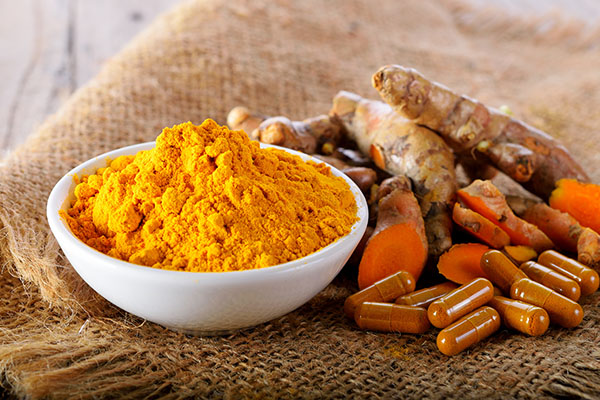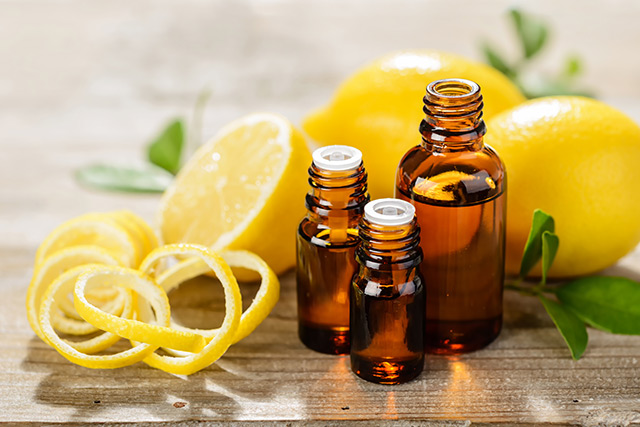Here’s how essential oils help relieve depression symptoms
09/13/2023 / By Evangelyn Rodriguez

Aromatherapy is the practice of using essential oils – potent plant extracts that possess beneficial properties – to promote well-being and treat various health issues. This holistic treatment has been around for centuries and can be traced back to the time of the ancient Egyptians.
Today, aromatherapy is still used as an adjunct therapy in clinical practice. Clinical trials have shown that certain essential oils can be used as natural remedies for minor complaints like insomnia, nausea, loss of appetite, headaches and post-operative pain, as well as mental health-related issues like anxiety, stress and depression. (Related: Natural remedies: Treating headaches with essential oils.)
Physical and cognitive symptoms of depression
Depression is a mood disorder characterized by a persistent feeling of sadness that could last for weeks or months. This condition manifests itself as a combination of cognitive and physical symptoms that greatly impact a person’s quality of life and ability to perform everyday tasks. Depression is said to affect more than 300 million people around the world and, if left untreated, could be life-threatening.
According to the National Institute of Mental Health, over 18 million American adults suffer from a depressive illness in any given year. Major depression (clinical depression), the most common and severe form of depression, is the psychiatric diagnosis most commonly associated with suicide. Research suggests that the risk of suicide among people with major depression is about 20 times that of the general population.
Common physical symptoms of depression include:
- Tiredness or fatigue
- Insomnia or sleeping more than usual
- Increased or decreased appetite
- Slow speech or movements
- Unexplained pain or headaches
- Low libido
- Constipation or diarrhea
Cognitive decline is also common among people who suffer from depression. This decline usually affects executive functioning, which encompasses a person’s ability to plan, solve problems and make decisions. Aside from executive dysfunction, other cognitive symptoms of depression include reduced attention and concentration, lower processing speed, impaired learning and poor memory.
The science behind aromatherapy
Today, the first-line treatment for depression is antidepressants. Pharmaceutical companies have developed a wide variety of antidepressants to address the different symptoms of depression. However, many patients end up looking for alternatives because of the suboptimal effectiveness of these medications and the unpleasant side effects they can cause.
One of the alternatives people with depression often turn to is aromatherapy. This complementary and alternative medicine (CAM) has been shown to help alleviate symptoms of depression. In a systematic review published in the journal Evidence-Based Complementary and Alternative Medicine, researchers looked at the results of 12 randomized controlled trials and concluded that aromatherapy is an effective treatment option for relieving depression symptoms.
According to the review, aromatherapy can be administered in two ways: Individuals suffering from depression can either inhale essential oils directly or have the oils massaged on their skin. When essential oils are inhaled, their beneficial components can easily enter the bloodstream through the blood capillary network in the nose and the bronchi in the lungs.
One of the main organs targeted by essential oils is the brain. Research shows that the active components of essential oils can stimulate parts of the brain through the olfactory epithelium. Located behind the nostrils, this thin tissue is composed of neurons and supporting cells that line about half of your nasal cavity. The most important cells in the olfactory epithelium are the olfactory receptor neurons, which help transmit olfactory information to the brain.
When you inhale essential oils, their chemical components stimulate olfactory receptor neurons, which then transmit signals to your limbic system and hypothalamus. The limbic system is the part of your brain involved in emotional and behavioral responses, while the hypothalamus is the part of your brain that produces hormones responsible for controlling your body temperature, heart rate, hunger, mood, sleep and thirst.
Once the signals reach your olfactory cortex — the part of your brain concerned with the sense of smell — they trigger the release of specific brain chemicals, or neurotransmitters, like serotonin. Serotonin is a natural mood booster that is linked to feelings of happiness. Research shows that serotonin acts on different brain regions and affects a range of functions and behaviors, such as memory, fear, digestion, sleep, breathing, body temperature and stress response.
Treating depression with aromatherapy
Studies at the Monell Chemical Senses Center in Philadelphia suggest that specific odors can change your mood and emotions, and these changes correlate to measurable physiological variations such as changes to your blood pressure, heart rate and body temperature. Studies also reveal that odors provide cues that trigger memory, and these memories are “more evocative and emotionally intense” than any memory triggered by other types of sensory cues.
By triggering memory associations and influencing specific parts of your brain that regulate physiological and emotional changes, aromatherapy can help relieve cognitive and physical symptoms of depression.
Here are four of the best essential oils for relieving depression symptoms, according to science:
Lavender essential oil
In a study published in the journal Phytomedicine, researchers found that lavender oil in capsule form (Silexan) is just as effective at relieving generalized anxiety disorder — a common trigger of depression — as Ativan, an anti-anxiety drug. They also noted that lavender oil showed no sedative effects and was well-tolerated by participants, making it a safe natural alternative to commonly prescribed depressant medications.
Aside from anxiety, lavender oil can also help with panic attacks and general nervousness and is particularly helpful for postpartum depression. It is also a good natural remedy for restlessness, depression, anxiety and sleep disturbances that accompany post-traumatic stress disorder.
Bergamot essential oil
According to a study published in the journal Neuroimmunomodulation, citrus fragrance not only helps restore homeostatic balance to the body, it could also normalize neuroendocrine hormone levels and immune function in people suffering from depression. These effects are extremely beneficial for the treatment of depression as dysregulation of neuroendocrine and immune function is associated with psychosomatic or psychiatric disorders like depression.
Among citrus oils, bergamot essential oil appears to be one of the best for relieving anxiety, a common symptom of depression. According to an animal study published in the journal Phytotherapy Research, bergamot essential oil can help reduce stress and anxiety by increasing the levels of gamma-aminobutyric acid (GABA) in the brain. GABA is a brain chemical with a calming effect and plays a major role in controlling anxiety, stress and fear. Bergamot essential oil proved to be more effective than the anti-anxiety drug, diazepam (Valium).
Clary sage essential oil
Low levels of the feel-good chemical serotonin and high levels of the stress hormone cortisol are often linked to depression and anxiety. According to a study by Korean researchers, clary sage essential oil can help relieve depression symptoms by significantly increasing serotonin while decreasing cortisol levels. Clary sage oil has also been found to promote feelings of hopefulness and confidence.
In a separate study, Korean researchers compared the antidepressant effects of clary sage, chamomile, rosemary and lavender essential oils and found that clary sage has the highest antidepressant activity. They attributed the oil’s beneficial effects to its ability to modify dopamine pathways in the brain. Dopamine is another feel-good chemical released by the brain and is commonly associated with feelings of reward and motivation.
Gardenia essential oil
According to a study published in the Journal of Biological Chemistry, gardenia essential oil is just as effective at calming anxiety and promoting sleep as depressants often prescribed for anxiety and insomnia – two common symptoms of depression. The study noted that gardenia essential oil works by enhancing GABA’s effect on certain brain regions, such as those responsible for regulating the sleep-wake cycle, by more than five times.
Unlike sedatives, relaxants and sleeping pills, gardenia essential oil doesn’t cause adverse effects, which makes it a safe natural alternative to these medications.
Essential oils are Mother Nature’s medicinal gift to mankind. Learn more about these versatile natural remedies at EssentialOils.news.
Watch this video to learn about essential oils you can use to support metabolic health and blood sugar control.
This video is from the CAT channel on Brighteon.com.
More related stories:
Essential oils can alleviate the symptoms of perimenopause.
Improve sleep quality to bolster your resilience against anxiety and depression.
STUDY: These prescription medications can increase your risk of depression.
Healthy habits and mental well-being: Natural ways to beat depression.
Drinking coffee can help reduce your risk of depression, according to studies.
Sources include:
IFAroma.org 2 [PDF]
CGA.CT.gov [PDF]
Submit a correction >>
Tagged Under:
alternative medicine, anxiety relief, aromatherapy, beat depression, Bergamot, clary sage, depression symptoms, essential oils, gardenia, healing, health science, herbal medicine, Herbs, Lavender, mental health, Mind, mind body science, natural cures, natural health, natural medicine, plant medicine, remedies
This article may contain statements that reflect the opinion of the author
RECENT NEWS & ARTICLES
COPYRIGHT © 2017 NATURAL CURES NEWS




















